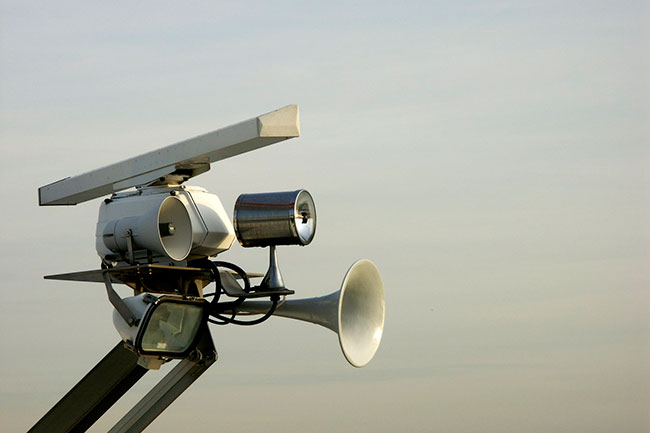Have you ever been startled by a loud, foghorn-like noise coming from your plumbing? It’s not just annoying; it can be downright perplexing.
You might wonder if your pipes are about to burst or if there’s a ghost ship sailing through your home. Understanding why your plumbing sounds like a foghorn can save you time, stress, and potentially expensive repairs. Imagine the peace of mind you’ll feel once you uncover the reasons behind this mysterious noise.
Stay with us as we dive into the common causes and easy solutions, helping you restore silence and serenity to your home.
Common Plumbing Noises
Plumbing noises can be a real headache. They often disrupt peace at home. Identifying these sounds is the first step to fixing them. The foghorn sound is a common plumbing issue. It often signals a problem with the pipes or fixtures.
Identifying Foghorn Sounds
Foghorn sounds are loud and deep. They resonate like a ship’s horn. This noise usually occurs when water flows through pipes. Faulty valves or high water pressure can cause this sound. Sometimes, loose washers might be the culprit. Finding the source helps in resolving the issue swiftly.
Other Unusual Plumbing Noises
Plumbing systems can produce a variety of sounds. Each sound indicates different problems. Banging noises often suggest loose pipes. Whistling sounds might mean high water pressure. Gurgling noises can point to drainage issues. Understanding these sounds helps in diagnosing the problem effectively.

Credit: www.intoplumbingandheating.co.uk
Causes Of Foghorn Sounds
Have you ever been jolted awake by a mysterious foghorn-like sound coming from your plumbing? You’re not alone. This baffling noise can disrupt your peace and leave you wondering what’s happening behind the walls. Understanding the causes of these foghorn sounds is essential to restoring silence in your home. Let’s dive into the potential reasons why your plumbing might sound like a foghorn.
Water Pressure Issues
High water pressure can be a major culprit behind foghorn sounds. When the pressure is excessive, it forces water through pipes too quickly, causing vibrations that result in loud noises. You might notice this particularly when multiple fixtures are in use. Installing a pressure regulator can help manage this issue, ensuring your water flow is smooth and silent.
Air Trapped In Pipes
Air pockets can get trapped in your plumbing system, especially after maintenance or repairs. These pockets cause water to move irregularly, creating a foghorn-like sound. Bleeding the pipes can release the air, restoring normal water flow. It’s a simple solution that can save you from sleepless nights.
Faulty Valves Or Fixtures
Old or faulty valves might not open or close completely, leading to unsettling noises. Imagine trying to shut a door that’s slightly jammed—it makes a sound, right? Similarly, when valves don’t function properly, they can vibrate and create foghorn sounds. Replacing worn-out parts can resolve this, bringing quiet back to your home.
Have you ever wondered if these noises could signal a bigger problem? Ignoring them might lead to more significant issues down the line. Tackling these causes head-on not only ensures peace in your living space but also maintains the health of your plumbing system. Don’t let your pipes become the symphony you didn’t ask for.
Diagnosing The Problem
Strange plumbing noises can be unsettling. A foghorn sound often signals trapped air in the pipes. Addressing this issue quickly helps prevent potential damage.
Diagnosing the problem of a plumbing system that sounds like a foghorn can feel like unraveling a mystery. You might find yourself startled by the eerie noise echoing through your home. But don’t worry, understanding the source of this sound is the first step to silencing it. Let’s walk through some practical steps to pinpoint the cause.Listening To The Noise
Start by paying close attention to when the noise occurs. Is it when you turn on a specific faucet or when the toilet refills? Note the location and timing of the sound. This information can guide you to the source. Consider the pitch and volume. A high-pitched noise might indicate a different issue than a low, rumbling sound. Is it constant or intermittent? These observations can help narrow down the potential causes.Inspecting Valves And Pipes
Examine the valves connected to the noisy pipes. Sometimes, a loose or worn-out valve can create vibrations that sound like a foghorn. Tighten any loose connections and see if the noise subsides. Look for visible damage or corrosion on the pipes. Even a small crack can amplify sounds throughout your plumbing system. Replace any compromised sections to prevent further issues.Checking Water Pressure Levels
High water pressure can wreak havoc on your plumbing. Use a water pressure gauge to measure the pressure in your system. Ideally, it should be between 40-60 psi. If the pressure is too high, consider installing a pressure-reducing valve. This simple adjustment can stop the foghorn noise and protect your pipes from long-term damage. Have you noticed that your plumbing sounds like a foghorn during specific times of day or after particular activities? Share your observations with a professional plumber. This insight can be crucial in diagnosing and resolving the issue efficiently.
Credit: architecturebeast.com
Diy Solutions
Hearing your plumbing sound like a foghorn can be unsettling. Often, the cause is minor and can be fixed with some basic DIY solutions. Before calling a professional, try these methods to quiet your pipes. They’re simple, cost-effective, and can save you a service call.
Adjusting Water Pressure
High water pressure often causes pipes to make noise. To adjust, locate your home’s main water valve. Turn it slightly to decrease pressure. Test your faucets and listen if the noise persists. Keep adjusting until the sound diminishes. If unsure, use a water pressure gauge. It measures the pressure more accurately.
Bleeding Air From Pipes
Air trapped in pipes creates noise. To bleed air, open all faucets in your home. Start with the highest faucet. Work your way to the lowest one. Let the water run for a few minutes. This helps push the air out. Close the faucets in the same order.
Tightening Or Replacing Valves
Loose or faulty valves can produce strange sounds. Inspect each valve closely. Use a wrench to tighten any loose ones. If tightening doesn’t help, consider replacing them. Purchase replacement valves that match your system. Follow instructions carefully during installation. Properly functioning valves reduce noise.
When To Call A Professional
Strange plumbing noises can be alarming. They may signal a deeper issue. Sometimes, these sounds mean your plumbing needs expert help. Knowing when to call a professional is crucial. This ensures your home’s plumbing stays in top shape.
Persistent Or Worsening Noises
If the foghorn noise persists, it’s time for a professional. Constant sounds indicate a problem that won’t fix itself. Ignoring them can lead to bigger issues down the line. A plumber can diagnose and solve the issue quickly.
Complex Plumbing Systems
Modern homes often have complex plumbing systems. These systems need skilled hands to fix any problems. A professional knows how these systems work. They ensure everything runs smoothly without causing further issues.
Potential Underlying Issues
Foghorn sounds may hint at larger problems. There could be pressure issues or valve malfunctions. A professional can identify these underlying causes. They provide solutions that prevent future complications.

Credit: www.intoplumbingandheating.co.uk
Preventive Measures
Strange plumbing noises, like a foghorn, often signal trapped air in the pipes. Regularly check and tighten pipe connections to prevent this issue. If noises persist, consider consulting a professional to inspect for more serious problems.
Preventive Measures can help keep your plumbing quiet. Addressing potential issues early avoids complex repairs. Here are some effective steps to prevent plumbing noises.Regular Maintenance Tips
Regular maintenance is crucial. Check for leaks under sinks monthly. Listen for unusual sounds. Tighten loose fixtures. Clean drains to prevent clogs. Inspect pipes for wear and tear. Schedule professional inspections annually. Regular upkeep reduces the risk of noisy pipes.Upgrading Old Fixtures
Old fixtures can cause noise. Replace them with modern, quieter models. New fixtures improve water flow. They also reduce pressure fluctuations. Choose fixtures with noise-reducing features. Upgrading fixtures increases efficiency and reduces foghorn sounds.Installing Pressure Regulators
High water pressure creates noise. Install pressure regulators to control it. These devices maintain a stable pressure level. They prevent pipes from vibrating. Regulators are easy to install. They save water and energy. This simple fix can silence the foghorn sound.Impact Of Ignoring Plumbing Noises
Strange plumbing noises can be unsettling. Ignoring them may lead to bigger issues. Understanding the impact of these sounds is crucial. They might seem harmless, but the consequences can be severe. Let’s explore what happens if you ignore these noises.
Potential Damage To Plumbing
Ignoring plumbing noises can cause significant damage. Pipes may crack or burst from pressure. This leads to costly repairs. The foghorn sound might indicate loose parts. Over time, this can wear out the system. Regular checks help prevent major issues.
Increased Water Bills
Strange noises often signal leaks. Leaks waste water. This increases your water bill significantly. A small drip can become a large expense. Fixing the issue quickly saves money. Regular maintenance keeps your bills in check.
Impact On Home Safety
Plumbing noises can affect safety. Leaks may lead to mold growth. Mold poses health risks. It can cause breathing problems. Burst pipes can cause flooding. This damages your home’s structure. Listening to your plumbing helps maintain a safe environment.
Frequently Asked Questions
What Causes Plumbing To Sound Like A Foghorn?
A foghorn noise in plumbing often comes from water pressure issues or faulty valves. Check for loose or damaged pipes.
How Can I Fix Foghorn Plumbing Noises?
Start by inspecting valves and pipes for damage. Tighten loose fittings. If noise persists, consult a plumber.
Are Foghorn Noises In Pipes Dangerous?
No, they’re not dangerous. But they can indicate underlying plumbing issues. Address them to prevent bigger problems.
Can High Water Pressure Cause Foghorn Sounds?
Yes, high water pressure can lead to foghorn noises. Adjusting the pressure regulator may solve the issue.
Should I Call A Plumber For Foghorn Sounds?
If DIY fixes don’t work, call a plumber. They can identify the cause and repair the problem effectively.
Conclusion
Plumbing noise can be annoying. A foghorn sound often means a problem. It could be high water pressure. Or maybe air in the pipes. Fixing it can stop the noise. Checking pipes helps prevent damage. Call a plumber if the sound continues.
They can find the issue quickly. Regular maintenance keeps plumbing healthy. It avoids unexpected problems. A quiet home is a happy home. So listen to your pipes. Fix small issues early. Enjoy peace without the foghorn noise. Your plumbing deserves care and attention.





